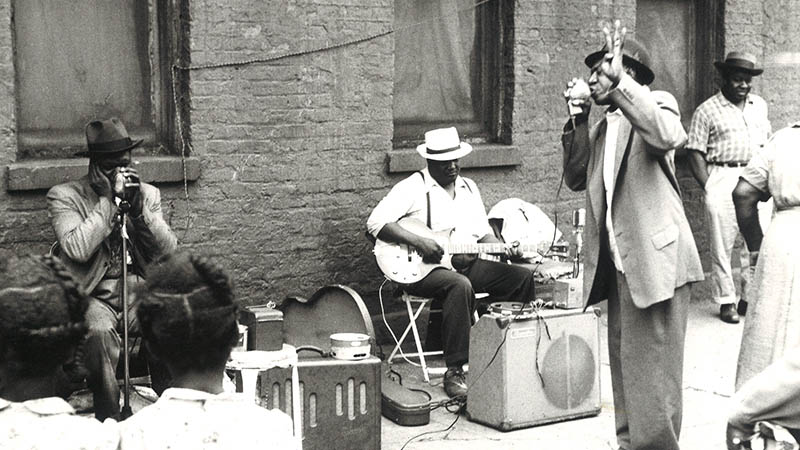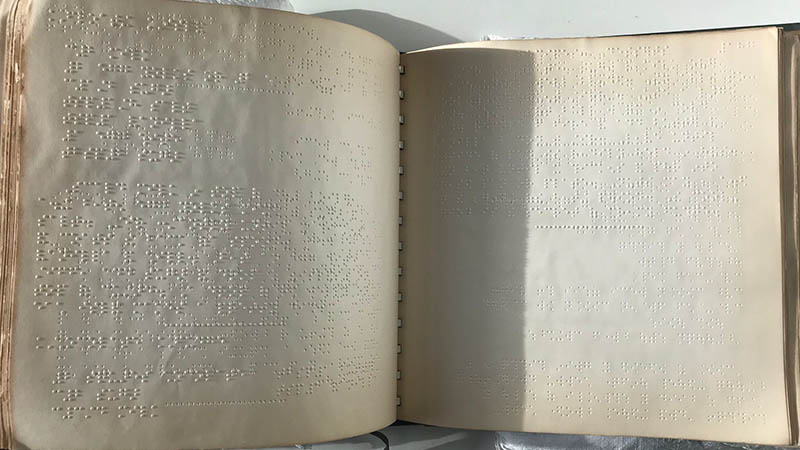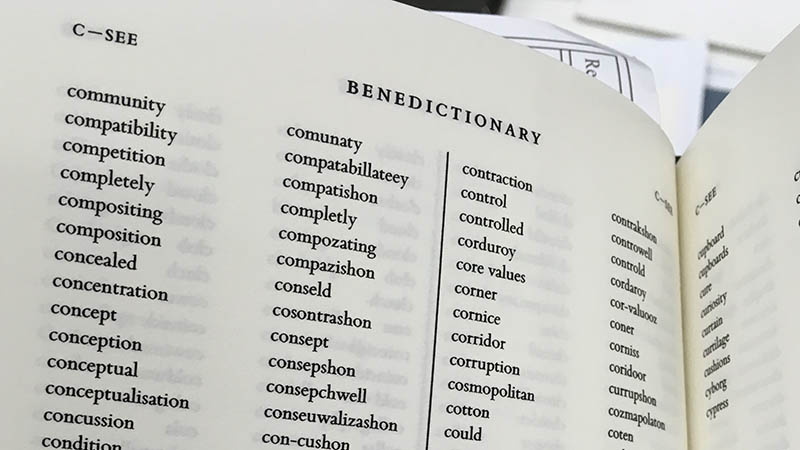This list highlights a number of resources in the Special Collections and Archive relating to disability histories. Please note that this list is a work in progress and more items will be added as we become aware of them. If you would like to suggest a resource for inclusion please contact specialcollections@brookes.ac.uk.
Paul Oliver Archive of African American Music
The Paul Oliver Archive of African American Music features a number of musicians who, through a variety of circumstances, lived with a form of disability – most commonly loss of sight. This was due to a number of different causes including injury, untreated illnesses or albinism. Racial discrimination and lack of access to medical treatment often exacerbated their conditions.
Despite the challenges they faced, many blind musicians went on to gain significant success and develop widely recognised skill in their craft. The collection contains interviews with the likes of Arvella Grey (who lost his sight and three fingers during a fight), Willie Blake (who was born blind in one eye and then lost his sight as a child) and James Brewer (who lost his sight as an adult). Their stories feature in the collection in the form of audio interviews, photographs, press cuttings, transcripts and music recordings.

Fuller Collection
The Fuller collection contains The Braille Cookbook, published in 1951. Braille is a tactile writing system and was created in 1824 by Louis Braille, who lost his sight in childhood due to an accident and resulting complications which were untreatable at the time. His work was based on the work of Charles Barboer, who invented ‘Night Writing’ as a form of written communication using raised dots.
Braille books are notoriously large, the one in our collection being no exception. Compiled at the Kentucky School for the Blind, and printed at the American Printing House for the Blind, the book markets itself as ‘Compiled for the Benefit of the Blind Housewife’. The book could only be used by those with the opportunity to learn braille, which highlights (when compared to the example above) the disparity in financial and society opportunities which could impact opportunities for people with disabilities in 1950s America.

Chris Fowler Artists’ Books Collection
The Chris Fowler Artists’ Books Collection includes several works which explore life with a disability. Two works by Brookes alumni Felicity Ford, Pimp My Guide and The Missabilty News (featured in the page banner), explore the idea of expressing your personal style through customisation of guide dog harnesses and mobility aids.
The collection also has books which provide commentary on experiencing dyslexia. Former student artist Emma Stevens’ Insid Dislexcia shows how she sees a book differently through the lens of her dyslexia and Benedict L. Phillips’ A Benedictionary offers help to people who are ‘lecksick’ to spell in more creative ways.

Dorset House School of Occupational Therapy
The Dorset House archive shows how Occupational Therapy has been used to help people with mental and physical disabilities. Students taught patients how to use mobility aids such as crutches and used craft as a way to ease depression or to improve dexterity in the hand and arms of patients. More about the School and its archive can be found in the online exhibition Dorset House at 90.
